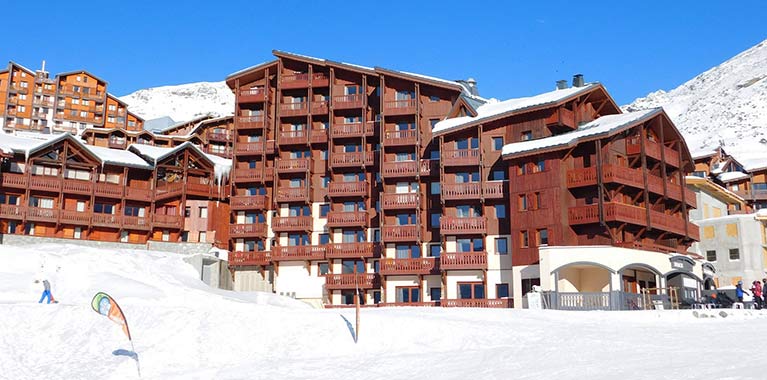
Skiing Safely: Essential Tips for Staying Safe on the Slopes During Your Holiday
April 23, 2024Skiing is an exhilarating sport that offers thrills and adventure against the backdrop of stunning mountain scenery. However, it’s essential to prioritise safety on the slopes to ensure a memorable and injury-free skiing holiday while staying at self catered ski chalet val thorens. In this blog, we’ll discuss essential tips and guidelines for staying safe while skiing, helping you make the most of your time on the mountain while minimising the risk of accidents or injuries.
Table of Contents
Know Your Ability Level:
Before hitting the slopes, it’s crucial to accurately assess your skiing ability and choose runs that match your skill level. Ski resorts typically categorise runs into beginner, intermediate, and advanced levels, with corresponding colour-coded markers (green for beginners, blue for intermediates, and black for advanced). Start on easier runs to warm up and gradually progress to more challenging terrain as you gain confidence and experience.
Wear Proper Gear:
Wearing appropriate ski gear is essential for protecting yourself from injuries and staying comfortable on the mountain. Invest in a well-fitted ski helmet to protect your head in case of falls or collisions, and wear goggles to shield your eyes from wind, snow, and glare. Dress in layers to stay warm and dry, and choose waterproof and insulated outerwear to protect against the elements. Don’t forget to wear sunscreen and lip balm with SPF to prevent sunburn at high altitudes.
Follow Skiing Etiquette:
Respecting skiing etiquette is crucial for maintaining safety and harmony on the slopes. Always yield to skiers downhill and to your right, and be aware of your surroundings to avoid collisions. When stopping on the slope, move to the side and out of the way of other skiers, and look uphill before merging onto a trail or crossing a path. Stay in control at all times and ski at a speed that allows you to react to unexpected obstacles or changes in terrain.
Stay Hydrated and Rested:
Skiing is a physically demanding activity that requires strength, endurance, and focus. Stay hydrated by drinking plenty of water throughout the day, and take breaks as needed to rest and refuel. Listen to your body and recognize signs of fatigue or dehydration, such as muscle cramps, dizziness, or lightheadedness. Pace yourself and avoid pushing beyond your limits to prevent accidents or injuries caused by exhaustion.
Be Prepared for Emergencies:
Despite taking precautions, accidents can still occur on the slopes, so it’s essential to be prepared for emergencies. Carry a fully charged mobile phone with emergency contact numbers programmed in case you need assistance. Familiarise yourself with the location of ski patrol stations, first aid facilities, and emergency evacuation routes at the resort. Consider taking a ski safety course or carrying a basic first aid kit with supplies such as bandages, antiseptic, and pain relievers.
Skiing safety is paramount for enjoying a fun and injury-free holiday on the slopes. By following these essential tips and guidelines, you can minimise the risk of accidents or injuries while maximising the enjoyment of your skiing holiday. Remember to ski within your ability level, wear proper gear, follow skiing etiquette, stay hydrated and rested, and be prepared for emergencies to ensure a safe and memorable experience on the mountain. Whether you’re a beginner or an experienced skier, prioritising safety is the key to making the most of your time on the slopes and creating lasting memories with friends and family.
